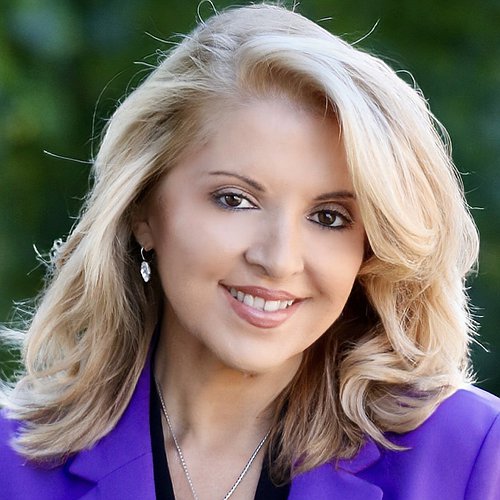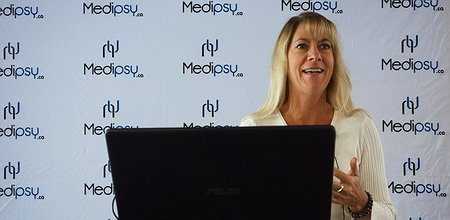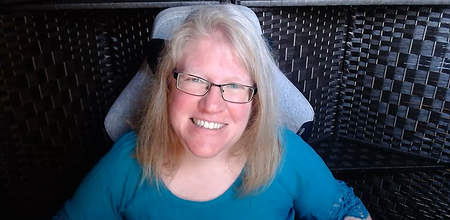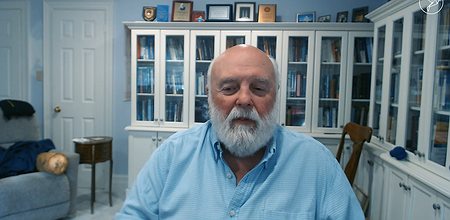This workshop includes theory as well as clinical examples. It includes videos ranging from 5-15 minutes in length. The PowerPoint of the workshop can be downloaded.
Navigating Narcissism with Schema therapy
Wendy Behary, Psychotherapist/Educator
How to defuse narcissistic attitudes for effective treatment
Excerpt: meeting core needs
- 6h of continuing education
- 31 lessons that last from 5 to 15 minutes each
- 1 certificate of achievement
- 1 power-point
- 1 bibliography
- 1 course evaluation
- 4 months access - automatically extended until you complete the course
- 7-day money back guarantee
- 97% of participants who completed the satisfaction survey declare they would recommend this course to a colleague
Overview
Navigating the complexities of narcissistic clients can be as fascinating as it is demanding. These individuals often present as intelligent, charismatic and brimming with self-confidence. However, their demeanor can quickly shift to self-absorption, arrogance and a lack of empathy, challenging even the most seasoned clinicians. Their sense of entitlement and condescending attitudes make therapeutic engagement a delicate balance.
This workshop, led by Dr Wendy Behary, psychologist with 25+ years of experience, offers a transformative approach to working with such clients. Delve into advanced clinical techniques designed to establish a firm, empathetic foundation for setting necessary boundaries and holding narcissistic individuals accountable. Through a focus on schema therapy complemented by diverse strategies, you'll gain a comprehensive toolkit for treating narcissism and Narcissistic Personality Disorder (NPD).
You'll also explore the integration of interpersonal neurobiology principles into your practice. This will enhance your understanding of your client's unique schemas and modes, offering deeper insights into their behavior. Additionally, the workshop emphasizes the importance of self-reflection and personal development. By recognizing and managing your own triggers, you can avoid intense reactions and maintain a therapeutic stance that benefits both you and your client.
About the expert

With 25+ years of professional experience and advanced level certifications, Wendy Behary is the founder and director of The Cognitive Therapy Center of New Jersey and The Schema Therapy Institutes of NJ-NYC-DC. She has been treating clients, training professionals and supervising psychotherapists for more than 25 years.
Wendy was on the faculty of the Cognitive Therapy Center and Schema Therapy Institute of New York (until the Institutes merged in 2012), where she trained and worked with Dr. Jeffrey Young since 1989. She is a founding fellow and consulting supervisor for The Academy of Cognitive Therapy
(Aaron T. Beck’s Institute). Wendy served as the President of the Executive Board of the International Society of Schema Therapy (ISST) from 2010-2014 and served as the Training and Certification Coordinator for the ISST Executive Board from 2008-2010. She is currently the chair of the Schema Therapy Development Programs Sub-Committee for the ISST.
Wendy Behary has co-authored several chapters and articles on Schema Therapy and Cognitive Therapy. She is the author of an international bestselling book, "Disarming the Narcissist...” translated in 16 languages. The Third Edition was recently released and was selected by Oprah Daily as one of the top books on the subject of Narcissism. Wendy has a specialty in treating narcissists and the people who live with and deal with them. As an author and subject matter expert on narcissism, she is a contributing chapter author of several chapters on schema therapy for narcissism for professional readers. She lectures both nationally and internationally to professional and general audiences on schema therapy, narcissism, interpersonal relationships, anger, and dealing with difficult people. She receives consistent high praise for her clear and articulate teaching style and her ability to bring the therapy to life through dramatic demonstrations of client interactions in the treatment room.
Her work industry business speaking engagements focus on interpersonal conflict resolution. Her private practice is primarily devoted to treating narcissists, partners/people dealing with them, and couples experiencing relationship problems.
Learning objectives
- Use schema theory and schema mode work with narcissistic clients
- Integrate concepts from interpersonal neurobiology for accelerating treatment effectiveness
- Identify your client’s personal schemas and modes
- Use self-work to bypass intense reactions linked to personal triggers activated by the narcissist
Learning material
Syllabus
- PowerPoint
- 1. A parallel process
- 2. When triggered by the narcissist
-
Narcissism modes
- 3. Early maladaptive schemas (part 1)
- 4. Early maladaptive schemas (part 2)
- 5. Answers to audience's questions
- 6. Origins of Narcissism
- 7. Answers to audience's questions
- 8. Four types of schemas
- 9. Descriptions of the schemas
- 10. Schemas in Narcissism
-
Narcissism in relationships
- 11. Intimate relationships
- 12. Some obstacles in treating Narcissism
- 13. Answers to audience's questions
- 14. Meeting core needs
- 15. Fortify terapy relationship
- 16. Answers to audience's questions
- 17. Empathic confrontation
- 18. Working with the detached mode
- 19. Still face experiment
- 20. Answers to audience's questions
-
Therapy for Narcissism
- 21. Photos and audio flashcards
- 22. Narcissists parents
- 23. Audio flashcards
- 24. Goals of therapy for Narcissism in mode terms
- 25. Progression of therapy (part 1)
- 26. Progression of therapy (part 2)
- 27. Answers to audience's questions
- 28. Introduction to video demonstration
- 29. Video demonstration
- 30. Answers to audience's questions
- 31. Conclusion
- Bibliography
CE Credits
Download a certificate of successful completion.
Audience
This training is intended for mental health professionals.
Your comments
"I really enjoyed the course, specifically the teaching videos."
A psychotherapist (Canada)
Registration
Ask a question
Do you have a question? Then email us at contact@asadis.net
Frequently asked questions
-
How long do I have access to the course?
After your registration, the course is accessible anytime and from anywhere for 124 days. And if that’s not enough, we’ll automatically extend your access.
-
When does the course start?
That is entirely up to you! When you buy a course, you'll receive an access link that you can activate when you want.
-
Is there a student rate?
Yes there is! To learn more, email us at contact@asadis.net.
You may also be interested in:
Legal notice
The courses offered by ASADIS are accredited by different professional organisations. In addition, ASADIS is approved by the Canadian Psychological Association to offer continuing education for psychologists. ASADIS maintains responsibility for the program.
The CPA’s approval of an individual, group, or organization as a CE Sponsor or Provider is restricted to the activities described in the approved application or annual report form. The CPA’s approval does not extend to any other CE activity the Sponsor or Provider might offer. In granting its approval, the CPA assumes no legal or financial obligations to Sponsors, Providers, or to those individuals who might participate in a Sponsor or Provider’s CE activities or programs. Further, responsibility for the content, provision, and delivery of any CE activity approved by the CPA remains that of the CE Sponsor or Provider. The CPA disclaims all legal liability associated with the content, provision, and delivery of the approved CE activity.





